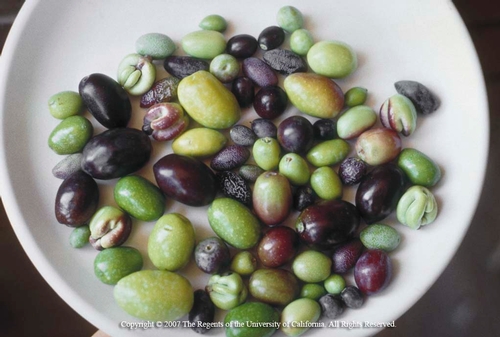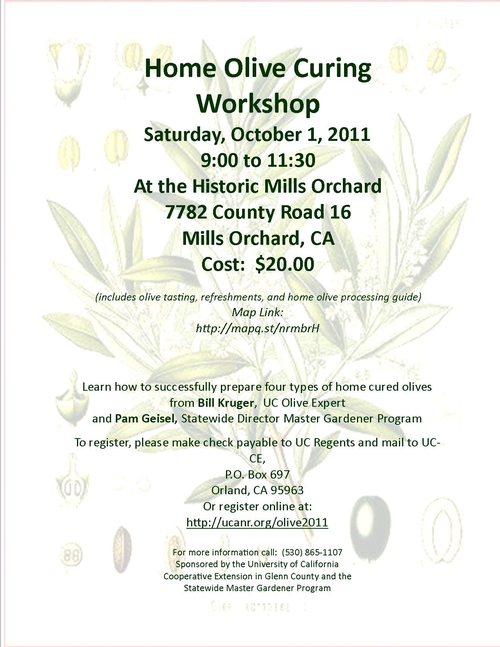
Oh, I love this time of year. The harvest is on for prunes, almonds, walnuts and soon, olives for processing into both table olives and olive oil. While making olive oil at home is possible, it isn't easy. But it is easy to cure your own olives at home using one of several great methods. You may cure them using the traditional lye cured method. They can be salt cured using black ripe olives, which creates a dry olive that is wonderful when rinsed and coated with good olive oil and chopped rosemary. You can water cure them or finally you can ferment them like one would ferment cucumbers for dill pickles. What is really great about olives though is that once they are cured, the real art comes down to the seasonings you apply to them. The cured olive is only a carrier for the seasonings and stuffing that add the final embellishment. For example, you could lye cure a green olive. Once cured, then you can stuff them with pimento, blanched almonds, feta

The second workshop is being held near Chico at th

Both are being taught by UC Cooperative Extension Advisor Bill Krueger, Statewide Master Gardener Coordinator Pam Geisel and UC Master Food Preservers and a few others. The UC Davis class will also include an olive oil tasting.
For recipes on how to process olives safely go to our free publication at: http://anrcatalog.ucdavis.edu/Olives/8267.aspx